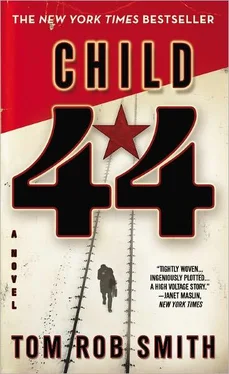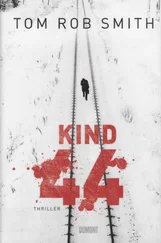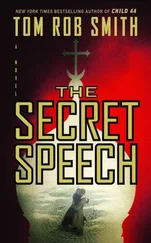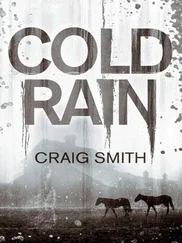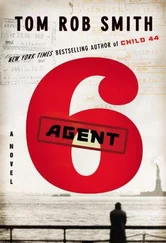16 February
Even though it had been his place of work for the past five years, Leo had never felt comfortable in the Lubyanka, the headquarters of the MGB. Casual conversations were rare. Reactions were guarded. All this was hardly surprising considering the nature of their occupation but to his mind there was something about the building itself which made people uneasy, as though fear had been factored into the design. He accepted his theory was nonsense in so far as he knew nothing of the architect’s intention. The building predated the Revolution, existing as nothing more than an insurance office before being taken over by the Bolshevik secret security force. Yet he found it difficult to believe they’d by chance chosen a building whose proportions were so unsettling: neither tall nor squat, wide nor narrow, it was somewhere awkwardly in between. Its facade created the impression of watchfulness: rows and rows of windows crammed together, stacked up and up, rising to a clock at the top which stared out over the city as though it were a single beady eye. An invisible borderline existed around the building. Passers-by steered clear of this imaginary perimeter as if fearful they were going to be pulled in. Crossing that line meant you were either staff or condemned. There was no chance you could be found innocent inside these walls. It was an assembly line of guilt. Perhaps the Lubyanka hadn’t been constructed with fear in mind but fear had taken over all the same, fear had made this former insurance office its own, its home.
Leo handed over his identity card; a card which meant not only that he could enter the building but also that he could leave. The card-less men and women led through these doors were often never seen again. The system might carry them into the Gulags or to a building just behind this one, on Varsonofyevsky Lane, another State Security compound fitted with sloping floors, logpanelled walls to absorb bullets and hoses to wash away the rivulets of blood. Leo didn’t know the precise execution capacity but the numbers were high, up to several hundred a day. At those levels practical considerations, such as how easily and quickly human remains could be cleaned away, became an issue.
Entering the main corridor, Leo wondered how it would feel to be led down to the basements with no leave to appeal and no one to call for help. The judicial system could be bypassed entirely. Leo had heard of prisoners who lay abandoned for weeks and doctors who served no other purpose than the study of pain. He taught himself to accept that these things existed not just for their own sake. They existed for a reason, a greater good. They existed to terrify. Terror was necessary. Terror protected the Revolution. Without it, Lenin would’ve fallen. Without it, Stalin would’ve fallen. Why else would rumours concerning this building be deliberately spread by MGB operatives, muttered on the metro or on tramcars as strategically as if they were releasing a virus into the population? Fear was cultivated. Fear was part of his job. And for this level of fear to be sustained it needed a constant supply of people fed to it.
Of course the Lubyanka wasn’t the only building to fear. There was Butyrka prison with its tall towers and squalid wings filled with cramped cells where inmates played with matchsticks whilst waiting for their deportation to the labour camps. Or there was Lefortovo, where criminals under active investigation were transported for interrogations and where screams could be heard from neighbouring streets. But Leo understood that the Lubyanka held a special place in the people’s psyche, representing the place where those guilty of anti-Soviet agitation, counter-revolutionary activity and espionage were processed. Why did that category of prisoner strike particular dread into everyone’s heart? While it was easy to comfort yourself that you would never steal or rape or murder, no one could ever be sure they weren’t guilty of anti-Soviet agitation, counter-revolutionary activity and espionage since no one, including Leo, could ever be sure exactly what these crimes were. In the one hundred and forty articles of the criminal code Leo had just one article to guide him, a subsection defining the political prisoner as a person engaged in activity intended to:
Overthrow, subvert, or weaken the Soviet Power.
And that was more or less it: an elastic set of words stretching to accommodate anyone from top-ranking Party officials to ballet dancers to musicians to retired cobblers. Not even those who worked within the Lubyanka’s walls, not even those who kept this machinery of fear ticking could be certain that the system they sustained would not one day swallow them too.
Despite the fact that Leo was indoors he was still wearing his outdoor attire, including leather gloves and a long woollen overcoat. He was shivering. When he stood still the floor seemed to rock from side to side. Dizzy spells came over him, lasting for several seconds. He felt as if he was going to collapse. He hadn’t eaten in two days yet the thought of food made him sick. Even so he stubbornly refused to consider the possibility he was ill: he was a little cold certainly, tired perhaps, but that would pass. In the post-amphetamine crash, he just needed to sleep. There was no way he could take a day off. Not today, not when there was the matter of Anatoly Brodsky’s interrogation.
Interrogations were technically not part of his duties. The MGB had specialists who did nothing but interview suspects, moving from cell to cell, extracting confessions with professional indifference and personal pride. They were motivated, like most employees, by simple things such as the prospect of a performance-related-pay bonus, rewarded if the suspect signed promptly and unconditionally without amendments. Leo knew a little of their methods. He knew none of them personally. Interrogators formed something of a clique, working as a team, often sharing the same suspects, combining their particular gifts to attack resilience from a variety of different angles. Brutal, articulate, disarming: all of these qualities had their place. Outside of work these men and women ate together, walked together, shared stories and compared methods. Though they looked more or less like anyone else it was for some reason relatively easy for Leo to point them out. Many of their more extreme operations were confined to the basement, where they were able to control environmental elements such as heat and light. In contrast, Leo’s role as investigator meant he spent most of his time either upstairs or outside. The basement was a world he rarely descended to, a world he’d closed his eyes to, a world he preferred to keep under his feet.
After a short wait Leo was called in. Unsteady, he entered Major Kuzmin’s office. Nothing in this room was accidental: everything had been meticulously planned and positioned. The walls were decorated with framed black-and-white photos, including one in which Stalin was shaking Kuzmin’s hand, a photo taken at the Leader’s seventieth birthday. Surrounding these were a selection of framed propaganda posters collected from different decades. Leo supposed the age range was intended to suggest that Kuzmin had always occupied this office even during the purges of the 1930s, which was not the case, he had been in army intelligence. There was a poster of a plump white rabbit in a cage. EAT MORE RABBIT MEAT! There were three powerful red figures smashing their red hammers against the heads of sulky-looking unshaven men. FIGHT LAZY WORKERS! There were three smiling women heading into a factory. TRUST YOUR SAVINGS TO US! The US in the last poster didn’t refer to the three smiling women but rather to the national savings account. There was a poster of a bulbous man dressed in a suit and top hat carrying two bags brimming with money. CAPITALIST CLOWNS! There were blocky images of docks, ship-building, railways, smiling workers, angry workers and a fleet of locomotives all in honour of Lenin. BUILD! These posters were rotated regularly and Kuzmin was fastidious about showing off his extensive collection. Equal care was spent on his book collection. His shelves were stocked with all the appropriate titles whilst his copy of The History of the All-Union Communist Party: Short Course, the text ushered in by Stalin himself, rarely left his desk. Even the waste-paper basket contained only rigorously selected items. Everyone from the lowliest clerk to the highest-ranking officer understood that if you genuinely wanted to dispose of something you sneaked it out, discreetly getting rid of it on the way home.
Читать дальше
